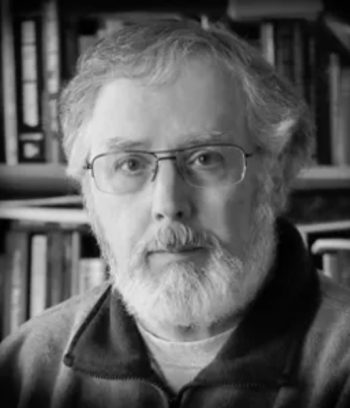
About P.D Blackwell:
P.D. Blackwell is an accomplished author in the field of Science Fiction. With years of experience crafting compelling stories that challenge the imagination, P.D. Blackwell is a name that is synonymous with excellence. P.D. Blackwell's fiction writing is characterized by a deep understanding of human nature and an ability to weave complex themes into captivating plots. Readers are sure to be engrossed in P.D. Blackwell's works and will come away with a new appreciation for the power of storytelling.
What inspires you to write?
Science Fiction is an altogether unique creation. Facts only matter as they pertain to the story, so there is more freedom to examine concepts foreign to the real world. The thrill of the unknown is the driver that propels the story, no matter the plot, but it still must contain the essential foundations of the human psyche, which is what drives the characters, and they are the source of my inspiration and the energy that moves the story forward.
What authors do you read when you aren’t writing?
Science Fiction:
Frank Herbert, for his attention to detail and well-crafted composition.
Isaac Asimov, for his generation-spanning stories. From “Foundation,” to “The Last Question.”
Robert Heinlein, for “Stranger in a Strange Land.”
Ray Bradbury, for his fanciful tales in “The Illustrated Man,” and “The Martian Chronicles.”
Arthur C. Clark, for his scientific accuracy in “The Sentinal,” “The Sphere,” “Childhood’s End,” and “Randevious with Rama.”
Non-fiction:
Graham Hancock, for “Fingerprints of the Gods,” and “Magicians of the Gods.”
Paul A. La Violette, for “Subquantum Kinetics,” “The Secrets of Anti-Gravity Propulsion,” and “Genesis of the Cosmos.”
David Chilton, for “Days of Vengeance.”
Tell us about your writing process.
I consider a problem or imagine a specific character. A short outline is created. Based on the final outline I then detail the characters necessary to the story. As the outline expands, I add or delete characters as needed. The story must flow from the characters, so based on the plot, this can be a few characters or dozens of characters. Once the first draft is completed, I look for plot holes and other inconsistencies. I re-write as needed.
For Fiction Writers: Do you listen (or talk to) to your characters?
I create characters on paper, sometimes with illustrations to help define their appearance.
The characters evolve into daydreams about their situation as the story progresses. This mental movie repeats with different outcomes as the characters advance through the story and enhance the plot. Once a specific situation is written, I review for plot agreement and logic as related to their personalities. Outstanding characters are smart, even if they haven’t got a clue as to what is happening around them at a particular moment. They drive their own story and the plot stems from their actions, just as real lives progress based on reactions to external events.
What advice would you give other writers?
Research and development – fiction needs an accurate foundation if it is to be believable, no matter the setting or period. Science Fiction must also be grounded in its reality, so intricate world-building is essential for even the simplest plots.
How did you decide how to publish your books?
Frank Herbert had difficulty finding a publisher for Dune. He eventually found Chilton Book Company, most famous for its trade magazines, and automotive manuals, and Dune eventually won the prestigious Hugo Award for Best Science Fiction. Herbert had published other work before he submitted Dune, but the initial reaction was negative from mainstream fiction publishers.
For new authors, finding a publisher is nearly impossible without industry connections, or a name familiar to the public. Today, with the competitive rise of self-publishing, an agent is essential for mainstream publishing, but without an existing brand, and well-established social media accounts, agents can also be hesitant to sign a new author.
Contests can boost name recognition, but the writing needs to fit the judges, otherwise it won’t get noticed. Contests year to year often change judges and with those changes, the writing that will be awarded also changes.
All this can lead to years of waiting for recognition and acceptance.
Based on the above realities, I decided to self-publish.
What do you think about the future of book publishing?
Self-publishing has increased the number of books released every year, and that is great for both authors and readers. Self-publishing does not imply lesser quality. The best-edited and formatted books are no longer the sole property of mainstream publishers, who consider themselves the gatekeepers of literary excellence.
While there has always been, and continue to be, Vanity Publishers, quality self-publishing demands the same editorial excellence, and the same marketing expense paid by mainstream publishers. This can be a rough hill to climb for those without the necessary resources, but with the introduction of Print-On-Demand, the initial cost for independent authors has been reduced, and the percentage of profit has risen.
Digital books have also increased options for independent authors. With the lower cost comes lower prices, which is a boon for readers willing to read ebooks. With greater enhancements available for ebooks, like the ability to combine left-to-right and right-to-left spelling, along with both English and along with both English and foreign alphabets in the same book (for academic research), ebook growth will be unlimited.
What genres do you write?: Fiction, Science Fiction
What formats are your books in?: Print
Website(s)
P.D Blackwell Home Page Link
Your Social Media Links
Goodreads
Twitter
LinkedIn
Instagram
All information in this post is presented “as is” supplied by the author. We don’t edit to allow you the reader to hear the author in their own voice.
